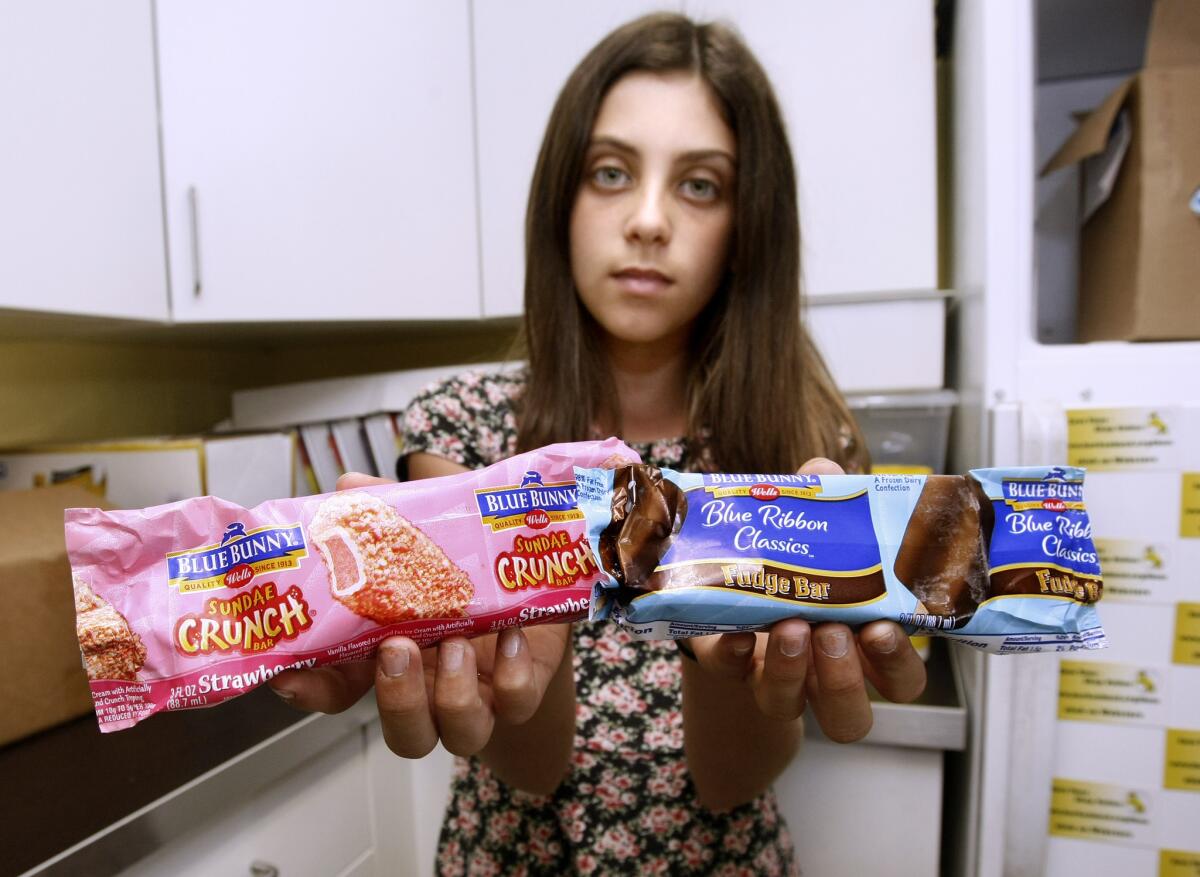Food rules are tough to swallow

Under growing pressure from state and federal officials, Burbank Unified school district officials are heavily enforcing a rule that prohibits students from fundraising during school hours by selling items available in the cafeteria.
The competitive food sales regulation is governed by California education code. If the school district is found to be non-compliant, they could lose a portion or a total of about $2.3 million per year in federal and state reimbursement dollars they get paid to supply meals to students — about $230,000 per month.
During the last school year, auditors made inspections at six Burbank campuses to make sure the schools were following this rule as well as making sure campuses were following nutritional standards.
The rule presents a real challenge for students, said Wendy Miller, ASB adviser at Burbank High.
At the start of the school year, Burbank High students belonging to clubs or athletic teams sold chips and whole grain Rice Krispies Treats during school hours, but since the items are sold in the school’s cafeteria, they had to stop.
Since all chips fall under one category under the state’s regulations, the clubs cannot sell any brand of chip, even if it’s a different brand.
“If food services is selling Cheetos, that is classified as a chip,” said Kathy Sessinghaus, director of food services for Burbank Unified. “That is how the government looks at it.”
“We still have to be the watchdogs of everything that happens during the school day,” she added. “[Government officials] can take away funding for a day, month, for however much they want…There are school districts who are being hit with penalties.”
Since the start of the school year, Sessinghaus has been working with schools to provide items for students to sell that don’t compete, such as Pirate’s Booty, beef jerky, graham crackers, pretzels or dried fruit, among other items.
On days where clubs and teams host major fundraisers, she’s offered to remove certain items from the menu, including the Rice Krispies Treats, frozen yogurt and cookies typically found in the cafeteria.
Since then, Luther Burbank Middle School ASB adviser Stefanie Enokian notified Sessinghaus that ASB weekly sales have doubled.
Still, Miller said it’s been difficult for the clubs and athletes to raise as much profit as they had in the past at Burbank High.
Earlier this year, Burbank High students sold a blended electrolyte drink they made by pouring water into a machine, but under state regulations, food sold by students can’t be prepared on site. The drinks also competed, under the law, with the V8 smoothie drinks in the cafeteria.
Students, however, can sell homemade goods or food items outside of the nutritional guidelines off campus or after school hours.
Miller wonders whether students will be able to raise enough money to purchase trophies or other equipment for their clubs or teams.
“These kids aren’t coming to school for their math class. They’re coming to school to be part of something. Without these athletics and activities, I can’t see that happening,” she said.
“There’s such a cloud over our campus as far as fundraising,” she added. “The district has cornered the market on all the items that are acceptable by the state.”
Sessinghaus said she feels the frustration that campuses can come up against — some schools have opted to sell no food and only school supplies in their student stores, she added, saying she remains obligated to meet the guidelines or risk losing reimbursement funds.
In the meantime, she’s been working with schools to help them find other options for making successful sales.
“That is truly what my focus has been,” she said.